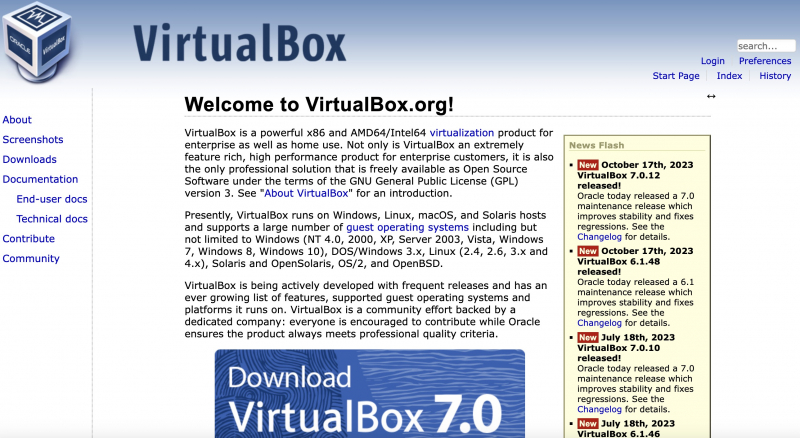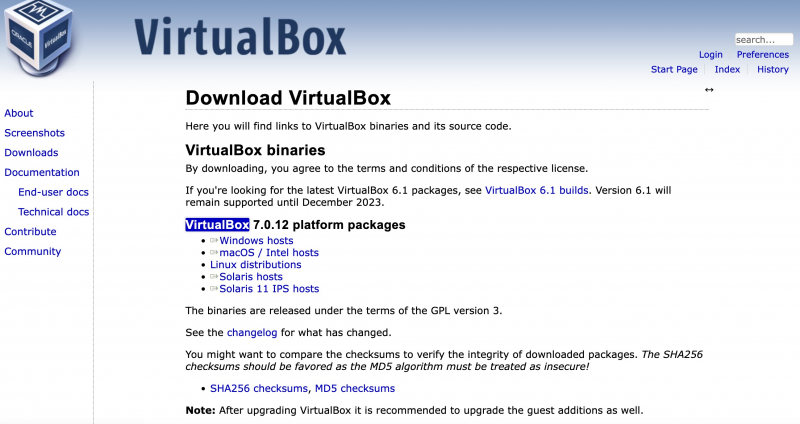VirtualBox

VirtualBox is one of the best docker alternatives. It was launched in 2007, with the function of creating several virtual machines running on many different operating systems to create and run applications. VirtualBox itself has greater strengths than Docker in some functions such as smooth running and high security.
VirtualBox allows you to store and backup files and storage media across operating systems without requiring many rigorous steps like on Docker. VirtualBox offers more powerful features because virtual machines created on VirtualBox do not share the host OS kernel.
You will create independent virtual machines with their operating systems when using VirtualBox. This helps you ensure complete isolation between environments, preventing software and resource conflicts. Instead of using Docker images, you can use VirtualBox's standard virtual machine images or create your own virtual machine operating systems from scratch.
In summary, using VirtualBox as an alternative to Docker can be useful in some cases, but it is often more suitable for testing and developing applications on many different operating systems such as cross-platform support and environment—secure virtual environments or when absolute isolation between environments is necessary. In particular, docker alternatives for mac, and docker alternatives for windows.
Features:
- 3D Graphics Acceleration
- VirtualBox supports remote desktop functionality.
- VirtualBox offers more powerful features because virtual machines created on VirtualBox do not share the host OS kernel.
Pros:
- Multiple operating systems on the same computer.
- When the virtual box crashes, it has absolutely no effect on the server.
- Easy to use and install.
- Supports the latest hardware.
Cons:
- Less effective when used as an alternative to the docker.
- Depends on the server.
- Affected by server weaknesses.
Founded: 2007
Headquarters: Gauteng, NA-South Africa
Website: https://www.virtualbox.org/











